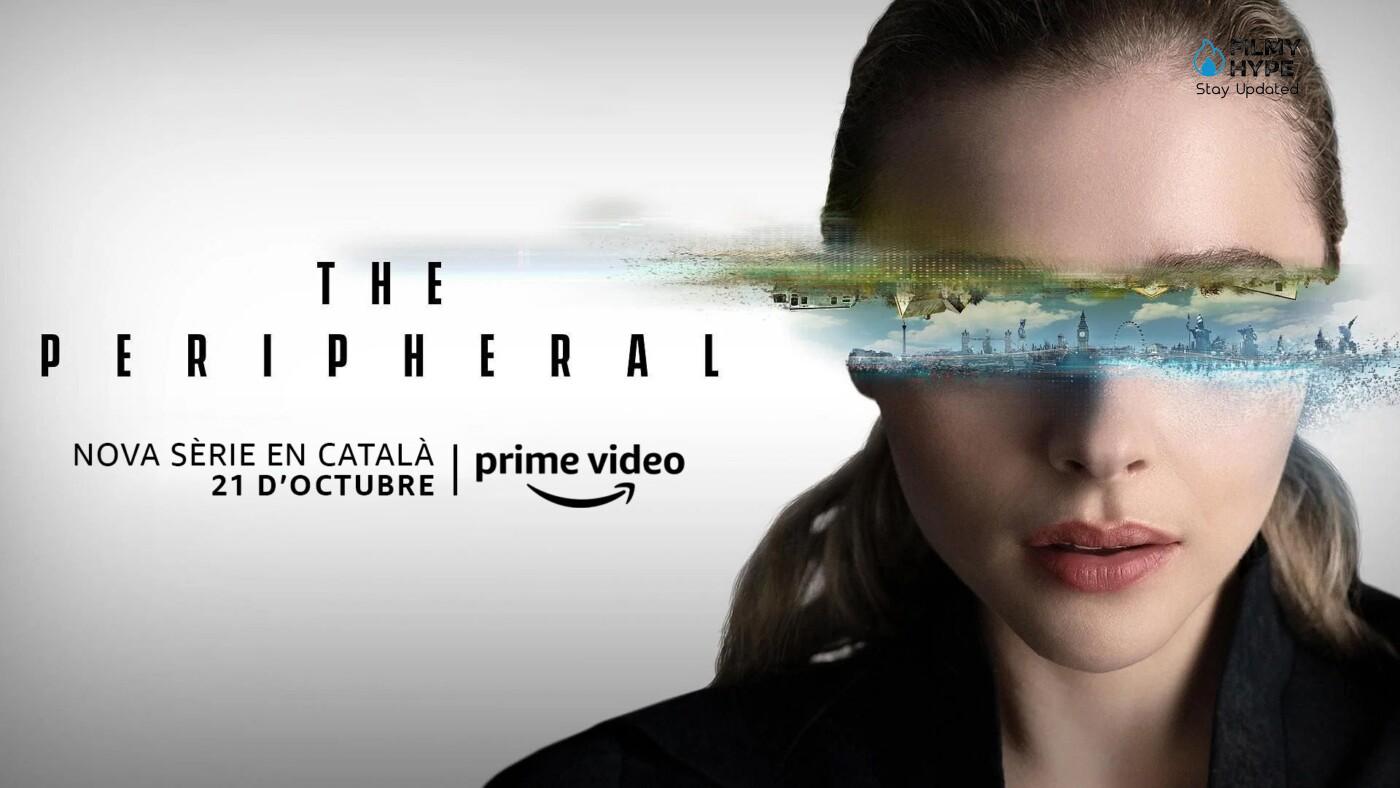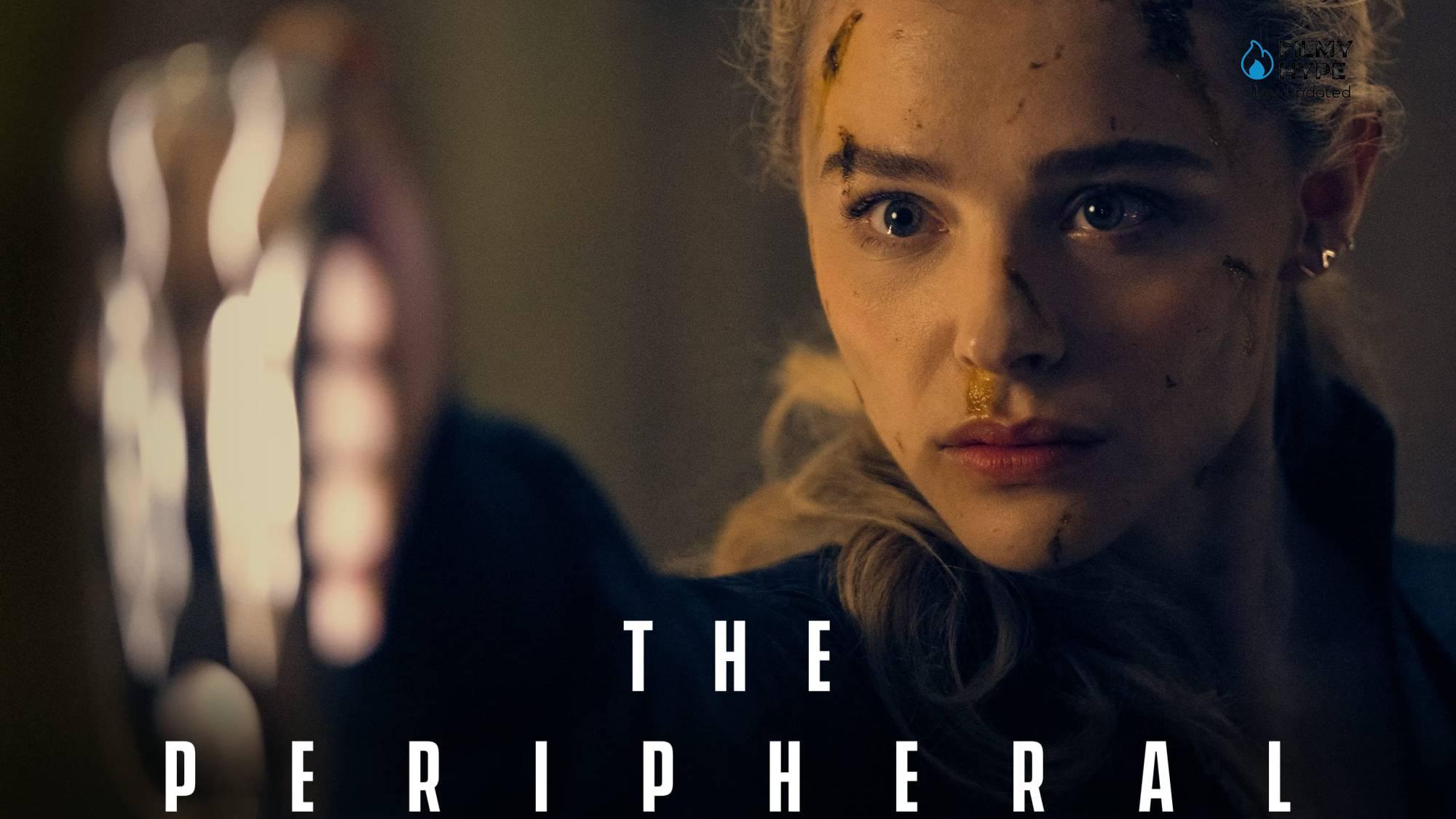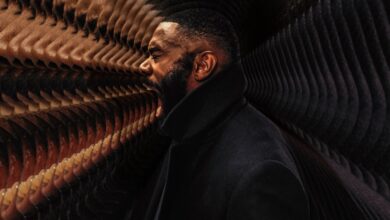The Peripheral Review: Episode 1-2 Thriller And Science Fiction Two Genres In One, an Amazon Masterpiece
Cast: Chloë Grace Moretz, Jack Reynor, Charlotte Riley, JJ Field, Alexandra Billings
Created By: Scott Smith, Jonathan Nolan and Lisa Joy
Streaming Platform: Amazon Prime Video
Filmyhype.com Ratings: 4/5 (four stars)
Coming October 21, The Peripheral is the new sci-fi TV series from Amazon Prime Video. The Peripheral is one of the most famous titles by writer William Gibson who, thanks to his works, has changed science fiction and the way we approach the genre. In addition to the curiosity towards the work from which it is taken, The Peripheral boasts other important names: it is created and produced by Scott Smith, Jonathan Nolan and Lisa Joy, former authors of Westworld. At the end of the seventies, William Ford Gibson became one of the most listened-to voices and, above all, read thanks to a very specific style and genre. This is a science fiction story and what will be called cyberpunk. In essence, therefore, we are faced with a worthy continuer of Asimov’s vision, one of the first writers to define the contours of a future world.

Certainly, a more recent work but, in any case, does not betray Gibson’s unmistakable style where the superimposition of different worlds is used to create the structure of a captivating thriller. And what could be the name involved in this project with a futuristic character which promises to build an articulated story? Nolan’s, even if it’s not Christopher’s. His brother Jonathan plays the role of executive producer and, in this way, demonstrates how the language of science fiction is a family passion. In the review of The Peripheral, we will delve into different aspects of this new project starring Chloe Grace Moretz, Jack Reynor, Gary Carr, Louis Herthum, JJ Feild and many others.
The Peripheral Review: The Story
Central to the whole story is the character of Flynne Fisher, a girl who lives in a small town in the Blue Ridge Mountains in 2032, a future in which machines and technology have fundamentally determined the lives of men. Her existence is very simple, if not downright insignificant. Despite her young age, she is already confused with invisible humanity living on the fringes supported by a series of illegal activities. Characters she meets daily inside the 3D object printing shop where she works. Although everything seems immutable in her life, however, something is about to change definitively. And everything is due, once again, to the machines and the new technologies that drive them.
To earn extra money start playing inside a virtual reality on payment of very rich characters. His partner in this new adventure is his brother Burton. Everything seems to flow in the best way until, however, Flynne is not confronted with a new generation simulation. The effect of her is unimaginable, so much so that it catapulted her directly into a futuristic London, seventy years ahead of the girl’s time, where she should steal precious secret information from a company known as the Research Institute.
Attention, however, what at first glance may seem like yet another simulation is a concrete reality reached through the opening of a time portal. After a first hesitation, therefore, Flynne will realize that he is no longer inside a game but that he is living a potentially dangerous reality. There are two questions to answer: who opened this passage and, above all, why? The answers represent the very heart of this adventure divided between two different levels of reality.
Taking on the themes dear to Gibson, The Peripheral approaches the genre by talking about time travel, and the cyber universe and questioning the very notion of time. The most fascinating element of the series is just how it uses one of the most beloved stylistic features of the genre, completely renewing it. The Peripheral does not have as its main narrative ploy time travel understood most classically, but a collision between two worlds, between two timelines that collide in a non-space.
The Peripheral Review and Analysis
We have already mentioned how this material, decidedly futuristic, represents the most congenial or, in any case, the preferred material for a visionary director like Christopher Nolan. A concept that, obviously, also applies to his brother Jonathan, in his first great experience as a producer. It is not surprising, therefore, that both for the narrative management and the aesthetic choices, this television series can show the unmistakable touch of a certain type of cinema as Nolan himself has accustomed us. It is enough to get to the middle of the pilot to perfectly understand that we are in a situation in which we recognize the essential elements of films like Inception and Interstellar.
Two are the aspects that lead in this direction: the construction of virtual reality and time leaps. The protagonist soon finds herself in virtual reality and another that, on the other hand, has the concreteness of reality. In this case, finding out who the architect responsible for the construction of the second is could represent one of the essential fulcrums of the story. Beyond this, however, Flynne moves in a continuous game between real, plausible and imaginary, where nothing is as it seems and many details could have the consistency of an illusion.

The same is practiced by a refined illusionist and that we have already seen staged in The Prestige. As for the time leaps, then, we are certainly not faced with the twisted and unstructured narrative of Interstellar but, together with the protagonist, it is certainly not impossible to get lost in continuous journeys between real and virtual, wondering, in the end, what is the actual distance between one and the other. A loss of orientation which, however, must not be interpreted in a negative but creative way. A ploy that leads the viewer to superimpose his steps on those of the protagonist, experiencing his situation in a sort of virtual game or altered reality.
Broadly respecting the narrative structure of Gibson’s novel, even if it is often betrayed, The Peripheral has a central core managed through the modules of a thriller. Because, beyond the sci-fi form, the viewer is asked to try to solve an enigma, even if it is distant in time. A narrative choice that, directly inspired by the novel, finds a complex visual realization that only the programming of a serial product has allowed it to carry out fully respecting the long time required. In this sense, therefore, the series seems to be structured and put into shape thanks to a purely formal element and another substantial one. In the first case, as we have said, everything veered toward a futuristic and sci-fi visual language that builds the perfect envelope, the scenography in which to stage one or more crimes. The second, on the other hand, shows a less decisive nature.
Here, in fact, in addition to having as a reference the classic structure of the modern thriller, functional to the success of the narrative, it is also a pseudo-philosophical reflection on a world where men have increasingly given way to machines, letting them condition their existence. Those theories, to understand, that Yuval Noah Harari included in his Homo deus – A brief history of the future, in which he debunks the foundations of humanism and the almost divine credibility of man. Because, in the end, a machine will define who we are.
We are certainly not facing the new masterpiece of the science fiction genre, it is still an entertainment series, like The Rings of Power, but there is no doubt that if the aforementioned fantasy series could play on a cinematographic visual sector and a script that recalls the stereotypes of the genre, here the visual sector, although not lacking, do not overwhelm everything around it and it is good because one series like this one, a mystery thriller, cannot also omit the component of mystery and writing. Amazon’s choice to publish the episodes weekly to create comparisons and theories, for a series that does not only lend itself to philosophical debates on potential technology and autocratic drifts but also on very dense mysteries that will surely give us to discuss. So, if you loved the first seasons of Westworld and you like not simple science fiction, this series is not only for you, but it is recommended.
The Peripheral Review: The Last Words
The Peripheral manages in the best way a form entirely inspired by the science fiction genre and a narrative core in which, instead, the structures of the thriller story take over. In this way, a complete experience is created aimed at destabilizing, in the best sense of the word, the viewer. The world of The Peripheral needs all the attention possible to be metabolized and understood and these first six episodes (whose weekly release is scheduled for October 21) put all the pieces in place for what hopefully will be a finale worthy of an exciting adventure.






